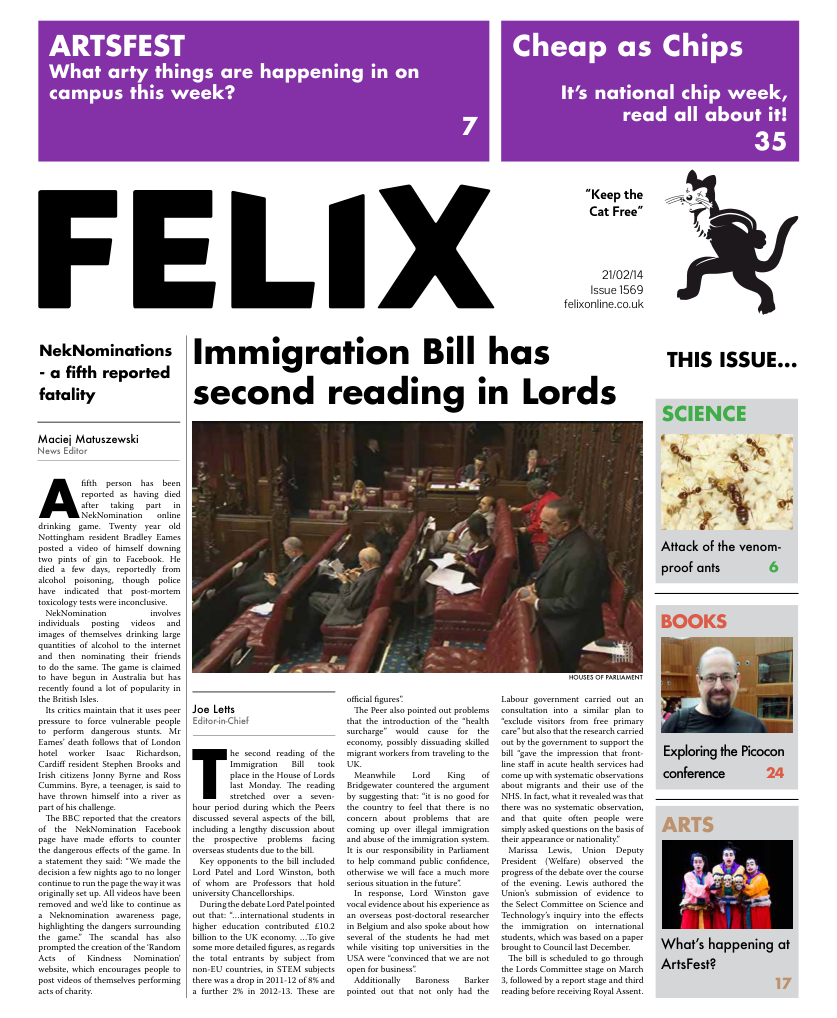Singularity Sky
Tom Rivlin explores one of Charles Stross’ most popular novels.
It’s hard to decide whether S_ingularity Sky_ is hard or soft sci-fi. Inherent to the setting of the book is faster-than-light (FTL) travel and an omnipotent, post-singularity AI. However that stuff is all really just a backdrop to incredibly nerdy (and delightful) discussions of spaceship-to-spaceship combat at relativistic velocities, and a gleeful dissection of how FTL travel inherently leads to time travel. (The word “light-cone” is thrown around a lot.)
If that paragraph put you to sleep, this book is not for you (also you’re silly). However, if you’re the kind of person who watches a space battle in Star Trek and goes “why do all the ships stop and stare at each other?” or is annoyed by Star Wars’ ubiquitous sound in space, then you should travel at sufficient FTL speeds to ensure you’ve already read the book before starting this review.
It’s clear that before a word of the book was written, Stross took the time to think very carefully about how to reconcile FTL travel with time travel, concluding that the only way to make it make any sort of sense is for there to be an artificial ban on messing with causality, as opposed to an inherent law of nature. Similarly, he clearly thought very hard about how ship-to-ship combat in space would actually happen, and does his best to stay true to that. Of course, the conclusion seems to be that ship-to-ship combat in space is a _terrible idea _and any civilisation who tries it and builds a massive space navy must be really, really stupid.
On that note, the story of the book is set in a post-singularity future, where humanity has a galactic diaspora, with many conflicting civilisations. An engineer from Earth is doing routine contract work for a particularly repressive and backwards empire, the New Republic, when he, along with a UN spy, accidentally get caught up in a space battle between the Republic and a mysterious, information-based civilisation called the Festival. The story is light-hearted and fun, and the two main characters have an interesting relationship, but, to me, it was mostly just window-dressing for the fun space battles.
Like all good sci-fi, the book has some smart things to say about how the technology in it would impact society. In the book, different economic and political systems clash on a galactic scale. Earth’s embrace of nanotech which can replicate any object, and its subsequent transition to a scarcity-free economy, is contrasted with the Republic’s strict ban on this technology, and its stasis in a good old fashioned 20th century dictatorship. What’s most engaging, though, is that neither side is presented as entirely better than the other. Earth’s people may have unlimited access to whatever they want, and have far more freedom, but the price for that is terrorism on an unprecedented scale – on Earth, any nutcase with an agenda can unleash the worst kinds of plagues and atomic bombs. And you thought the Anarchist’s Cookbook was bad.
It’s clear we’re meant to embrace the singularity in the book (“information wants to be free” is a quote from the book that appears on the cover), but Stross emphasises that the singularity didn’t fix all of our problems. Like all technology, it also made more.






